19 Best Chickpea Substitutes
When you buy through our links, The Breslin may earn an affiliate commission. Learn more
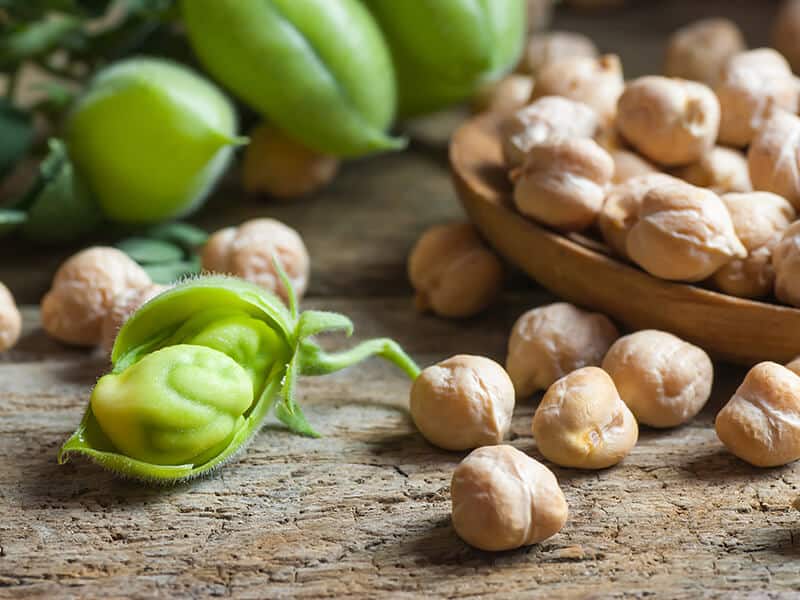
Looking for chickpea substitutes is one of my recent kitchen tasks. Although I am a big fan of chickpeas, I also want to diversify my diet with various legumes, seeds, nuts, and grains.
Moreover, I don’t think sticking with the same food for a long time is a good idea. Step-by-step, I am widening my comfort zone with many invigorating ingredients which are similar to chickpeas.
I would like to share my thoughts about each of them and elaborate on how you can use them in different recipes.
Let’s not wait another minute and plunge into my article right now.
What Can I Use As A Substitute For Chickpeas?
There are tons of ideas for chickpea replacements. Stay tuned and keep scrolling for a list of what you’re looking for.
Legume Options
- Black Beans
- Cannellini Beans
- Green Peas
- Lentils
- Soybeans
- Mung Beans
- Pinto Beans
- Lima Beans
- Edamame
- Tempeh
- Peanuts
- Kidney Beans
- Fava Beans
- Tofu
Seed, Nut, and Grain Options
- Hazelnuts
- Almond
- Sunflower Seeds
- Sorghum
- Quinoa
What Is A Chickpea?
Chickpea is known under various names such as Egyptian pea, garbanzo beans, Bengal gram, chana, and the list goes on and on. It belongs to the family Fabaceae, similar to lima beans, kidney beans, peanuts, and black beans.
Chickpea is probably in the limelight as the source of plant-based protein that all health-conscious people should pay attention to and add to their diets as soon as possible.
It’s said that this legume has been on the dining table of Mediterranean and Middle Eastern people for quite a long time before it became one of the most sought-after beans in the world.
Chickpeas come in two popular varieties. Kabuli is often used in salads or canned products. These chickpeas are ivory or white, round, and relatively uniform. They are twice as large as the second type, desi, more common in the United States.
Desi ranges from light brown to black and often varies in shape. The outer skin of desi beans is also thicker than Kabuli beans, which are primarily found in India and the Middle East cuisine.
Is Chickpea Good for You?
Keep reading to figure out how chickpeas react to your body once you add them to your life.
- Prevent Diabetes: Chickpeas contain a significant amount of soluble fiber, low glycemic index, and amylose (a type of resistant starch that digests slowly), which helps control blood sugar effectively and prevent diabetes.
- Prevent Cardiovascular Diseases: Soluble fiber helps to reduce bad cholesterol in the body. This way, chickpeas could protect your heart health effectively.
- Prevent Anemia: Chickpea contains a high amount of iron; therefore, consuming chickpea in your meal can help prevent anemia. Moreover, vitamin C in chickpeas will help your body absorb iron better.
- Support weight loss: This legume is high in protein and fiber, making you feel full for longer and curbs cravings.
What Can Be Substituted For Chickpea?
Chickpeas are versatile and health-giving, so no wonder you keep a lot of them in the house. But for some reason, you’re short on this goodie, don’t panic because there are more than ten options out there for you to choose from.
These substitutes might be familiar to you and mostly easy to find in stores. So, rest assured that you can save your recipes whether they are salads, soups, stews, or baked goods.
I’ll try my best to have you covered in the sections below.
Legume Options Which Make Your Dishes Even Better
When it comes to chickpea alternatives, you probably think of legumes first because they’re not only similar in taste but also in texture.
1. Black Beans
Black beans, or black turtle beans, are an excellent option in case you’re running out of chickpea in the pantry. This legume is well-used in Asian, Mexican, and Caribbean cuisine, especially in salsa, soup, dip, salad, and stew recipes. It has an earthy and sweet taste with a smooth texture.
It is worth noting that black beans go well with various herbs such as oregano, garlic, and cilantro, while chickpeas pair wonderfully with cardamon, mint, and ginger. Both can be cooked deliciously with cumin.
These beans are proven to improve heart health effectively. (1) Don’t hesitate to throw a handful of black beans into the pot and turn on the heat right now.
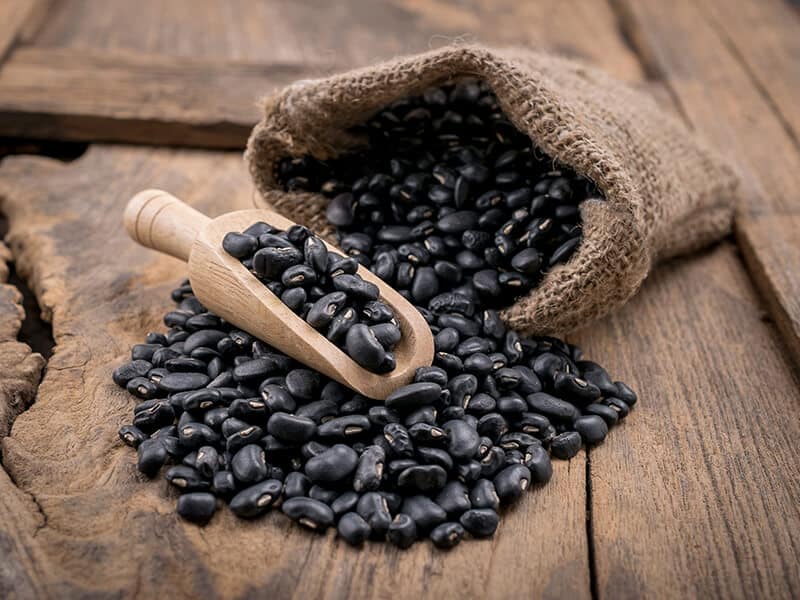
2. Cannellini Beans
If you’re a fan of Italian foods, you might have been acquainted with cannellini beans or medium-sized white kidney beans. It’s first grown in Argentina, then is widely used in Italy.
Cannellini beans are ivory, silky and nutty; most importantly, they can retain their shapes during the cooking process. For these reasons, they’re a good candidate for chickpea substitutes in salads and dinner side dishes.
Moreover, this versatile bean contains a high amount of digestible protein, which makes it nutritionally powerful. Whether you use cannellini beans or chickpeas, don’t forget to soak them in water before cooking because this will greatly reduce your time in the kitchen.
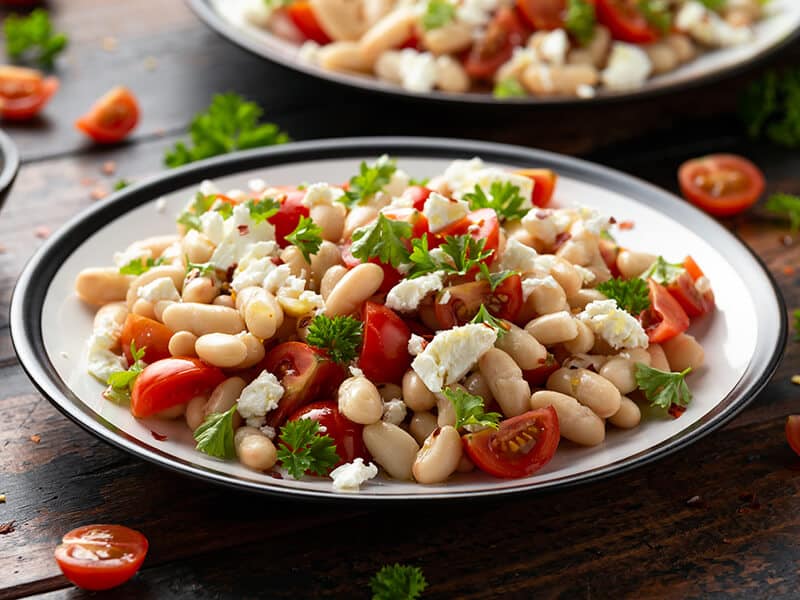
3. Green Peas
Are you looking for an alternative ingredient for chickpea in the coming recipes? How about adding some freshness to the food? Green peas might be what you need right now.
It’s a safe bet that you can find this legume available almost everywhere in the nearest grocery stores or supermarkets. There are many ways to cook green peas, and you can even have them raw by tossing them into your salads.
The best part? They have a tender texture and neutral taste so that they can go with any meal.
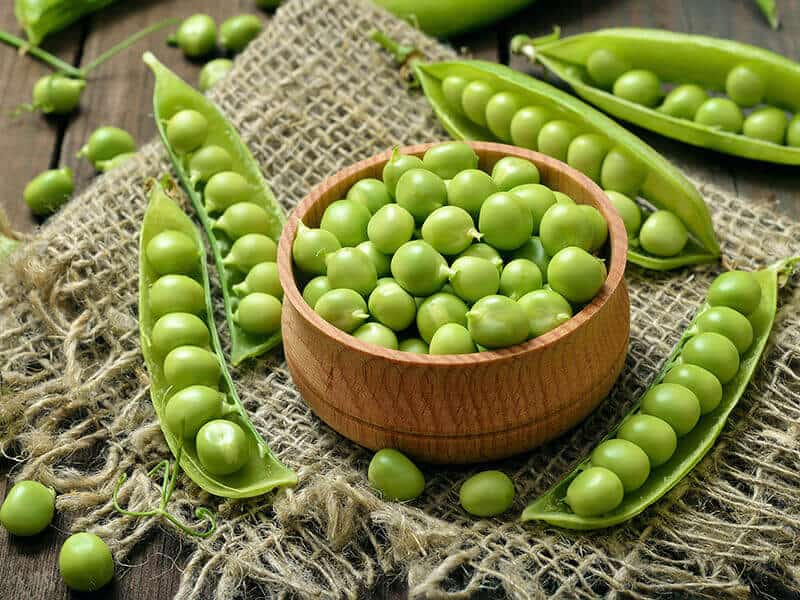
4. Lentils
Lentils are famous among health-conscious communities because they’re an essential part of a healthy diet, as well as chickpeas. Therefore, don’t think much if you have to replace chickpeas with lentils in some cases.
You can choose between red lentils, brown lentils, or green lentils. Each type of lentil has a slightly different aroma and can be used instead of chickpeas in various recipes.
Red lentils are perfect for hummus and salsa, while brown lentils should be a main ingredient of stew, and green lentils will be good for spreads and salads.
Lentils surely add a ton of nourishing nutrients to your meal, such as potassium, iron, folate, vitamin B1, and fiber.

5. Soybeans
Next on my substitute list is soybeans because they can produce dishes with the same texture as chickpea. In addition, they feature a mild flavor that you can easily combine with other ingredients to form a soothing dish.
Likely, soybeans are often incorporated in meals in the form of salads, soups, and stews. You should definitely make yourself a pot of soybean porridge or curry. They taste terrific.
Regarding health benefits, soybeans are an incredible source of omega-3 fatty acids and are high in protein and fiber.
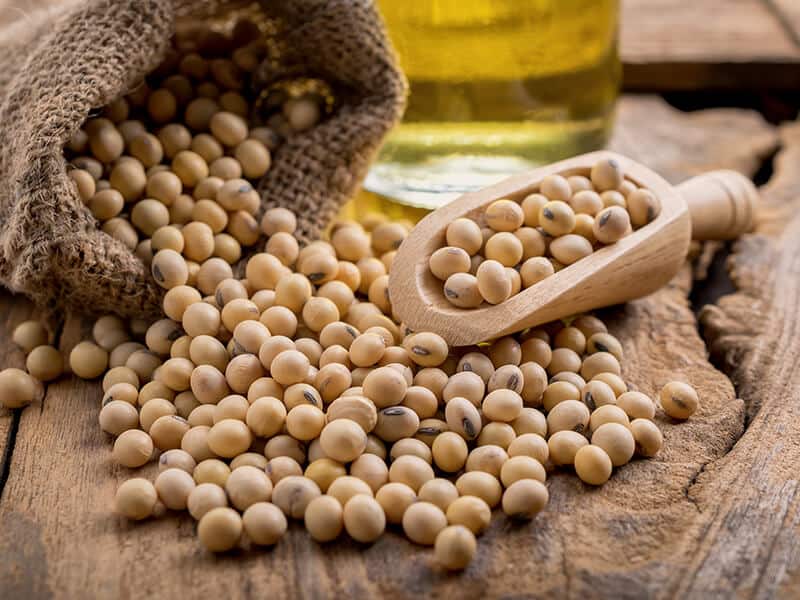
6. Mung Beans
Mung beans are my favorite legumes, which I often use as a delicious and health-giving soup base. In my opinion, you can switch chickpeas for mung beans if you’re planning to cook soups and curries.
When cooked, mung beans bring a wholesome, hearty flavor and texture to the dish and become more comforting to taste. Try this bean with rice and get a surprising result.
Mung beans are originally nutty and sweet. You can enhance their aroma with salt, garlic, ginger, and green onions for savory side dishes. Or you can add sugar, coconut milk for desserts.
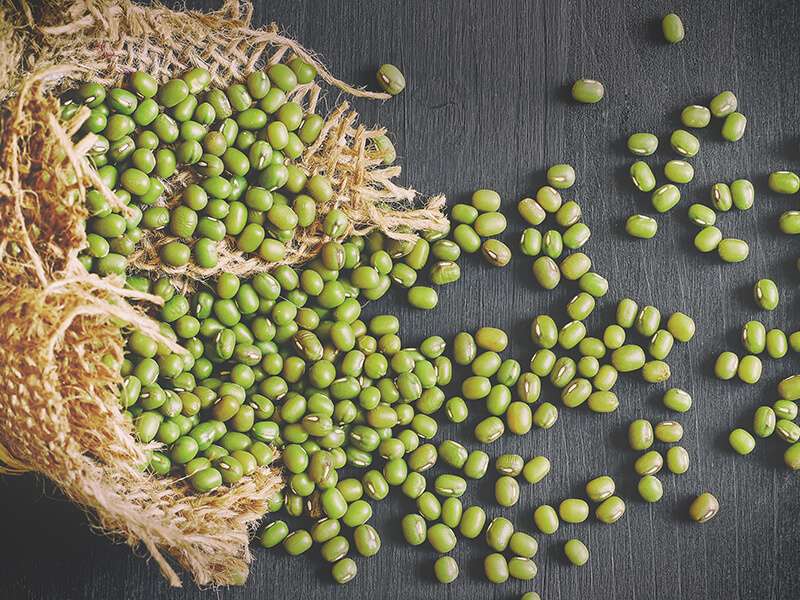
7. Pinto Beans
Pinto beans, painted bean, or frijol pinto might be considered when you want to give your dishes a kick of beany flavor. That means pinto beans often feature a more robust taste than chickpea: nuttier and earthier.
Plus, mashed pinto beans can improve the overall texture of the dish by making it creamier and denser.
This brown and beige bean is known to have the highest calorie count compared to other beans, so it indeed provides you with a boost of energy without consuming a large amount.
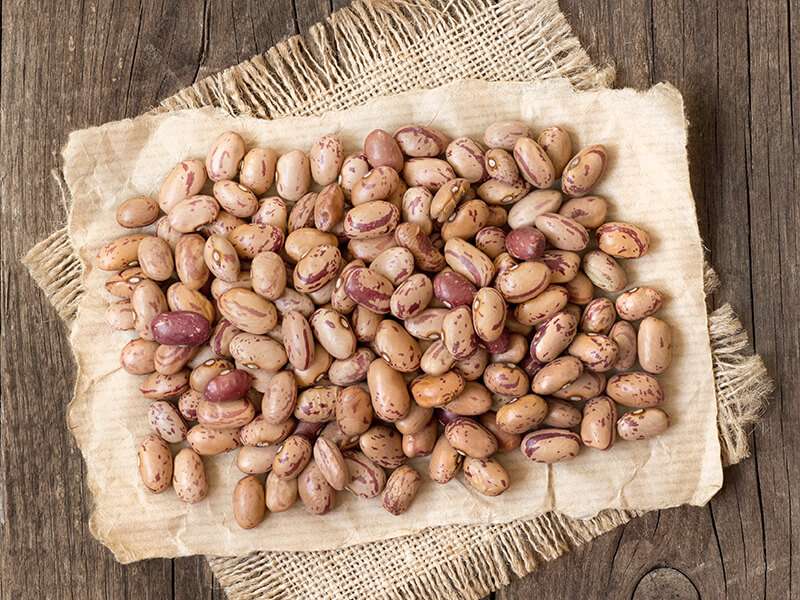
8. Lima Beans
Lima beans are native to South America. They’re also called butter beans, Madagascar beans, sieva beans, wax beans, double beans, or chad beans.
If you can’t find any chickpea around, lima beans should work for you as a replacement. You can easily buy them in popular forms – dried, frozen, and canned. They come with a creamy texture and buttery flavor.
This protein-packed ingredient contributes significantly to delicious salads, soups, chilis, especially slow-cooked recipes. I’m a firm believer that lima beans are made for beef and chicken. Let’s try!
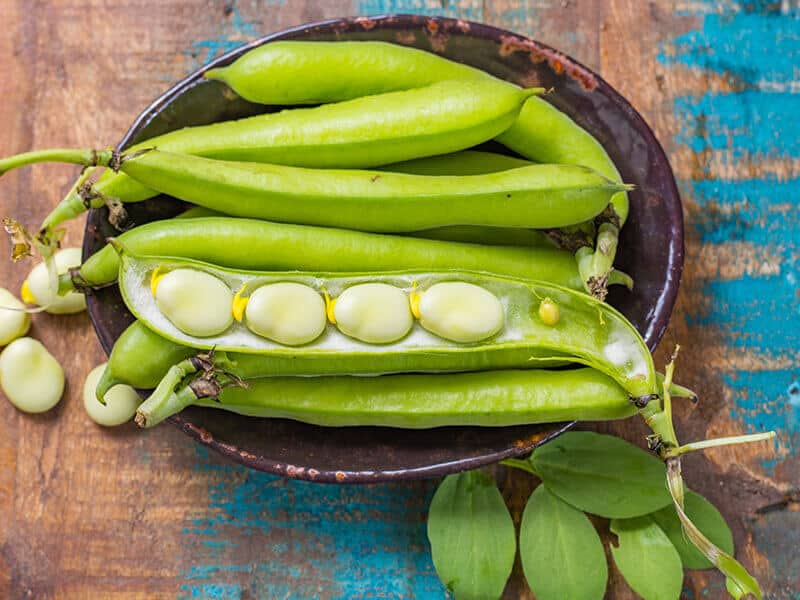
9. Edamame
Boil edamame and sprinkle them with a pinch of salt – that’s how you have a fantastic side dish to munch on while waiting for the main course.
In Japanese restaurants, edamame is often served and polished off in no time, thanks to its beautiful flavors.
As you might not know, edamame is a younger version of soybeans. Remember that you should avoid overcooking this legume at all costs because this will definitely destroy its vitamins.
Edamame has a softer texture and also contains more nutrients than chickpeas. That’s why if you’re on a diet and need nutrient-dense food, consider storing more of this kind of bean in your fridge.
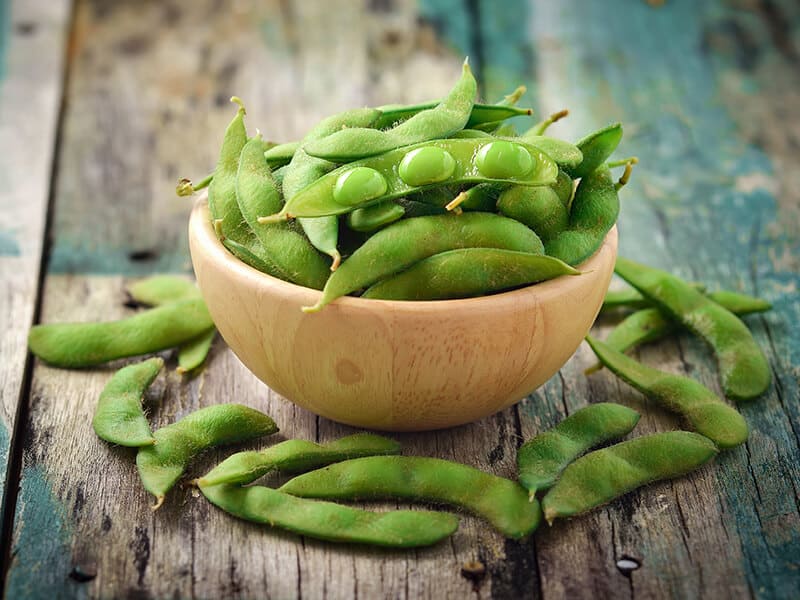
Edamame salad is straightforward to prepare yet awesome to taste:
10. Tempeh
Tempeh is a fermented product originating from Indonesia. The flavor of tempeh depends closely on which beans are used.
The most popular products which you often find in the grocery store are made from soybeans. Plus, it can be kept in the freezer for up to 12 months.
If you, like me, have been familiar with how tempeh tastes, you can always count on it for many recipes as an excellent alternative to chickpeas. To be more specific, tempeh has a firm, chewy texture and a bit of a sweet, mushroomy flavor.
Tempeh can be cooked in many ways: frying, steaming, grilling, making soups and sauces.
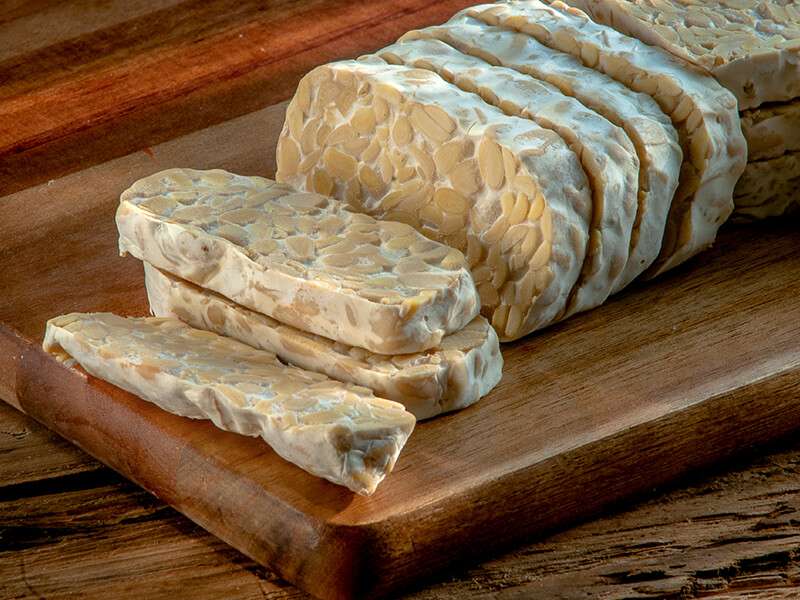
11. Peanuts
Sounds strange? Peanuts can taste a bit different from chickpea, but they can promise you plenty of savory and sweet dishes beyond delicious.
Thanks to its crunchy, nutty characteristics, peanuts are a part of many oh-so-good salads, snacks, dips, stews, and desserts. You can boil, fry or stir-fry this ingredient. Either way, they give out various aromas and textures.
It’s undeniable that peanuts are a staple food in the pantry because they’re versatile and generally good for health.

Believe me, this 20-minute candied peanut recipe is worth the wait!
12. Kidney Beans
If you’re allergic to chickpeas, kidney beans will be a good choice in this case. Kidney beans or love beans are named based on their shapes and colors, which look quite similar to the kidney. This leguminous goodness is viral all over the world.
You might find kidney beans in various colors such as red, black, white, cream, purple and more. They are primarily sold in canned or dried versions.
When cooked, kidney beans become creamy and sweet, making them an integral part of many dishes, such as chili soups.
Like other beans, this ingredient is a generous source of plant-based protein as well as vitamins and minerals such as molybdenum, folate, vitamin K1, potassium. (2)
13. Fava Beans
Fava beans, also called faba beans, vicia faba, or broad beans, are native to the Mediterranean region. This annual legume comes with earthy, sweet flavors and creamy texture, which makes it an outstanding candidate for chickpea replacement.
They work incredibly well in pastas, salads and soups as well as match well with some fish and lamb.
Among all recipes, I like to make mashed fava beans the most because the result is astonishing. To reduce cooking time and get a silky spread of fava beans, don’t skip the peeling step.
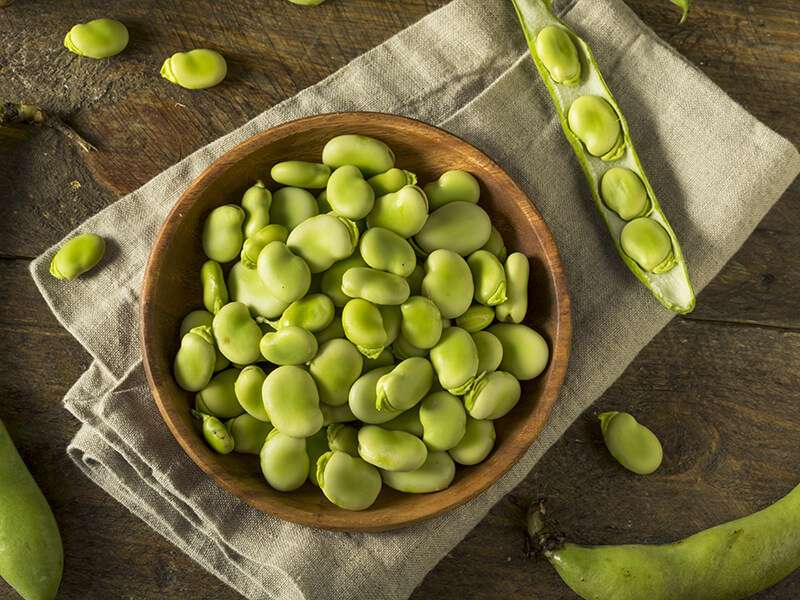
14. Tofu
For those who might have had enough chickpeas lately, you can start using tofu as an alternative.
There is a long list of what you can do with tofu from frying, making soups and salads, stir-frying to grilling. It’s up to you to choose your favorite recipes.
Tofu is an excellent source of protein and plant-based minerals such as iron, manganese and calcium. Not to mention, it also consists of vitamin B1 and zinc. Therefore, tofu can provide you with nutrition your body craves.
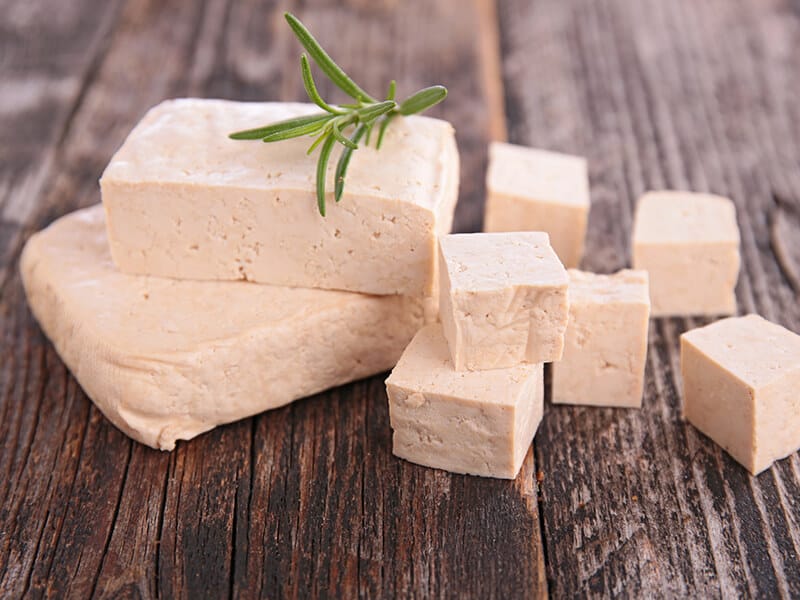
Amazing Seeds, Nuts, and Grains For Chickpea Recipes
To your surprise, seeds, nuts, and grains should be included in my list of chickpea substitutes because they’re helpful in various recipes.
15. Hazelnuts
Need a chickpea substitute to enhance the texture of salads and coleslaws? Look no further than hazelnuts. Yes, you heard me right.
This brown and round nut resembles a chickpea in appearance. In terms of flavor, it might not taste precisely similar but equally delicious.
Besides salads, hazelnuts are known to team up well with fish, fried brie, and pork. They also go along with various vegetables, including carrots, cauliflower, and other beans.
For the sake of your health, incorporating this nut into your diet is a great way to add up a whole range of vitamin B, for example, vitamin B1, B3, and B6. (3)
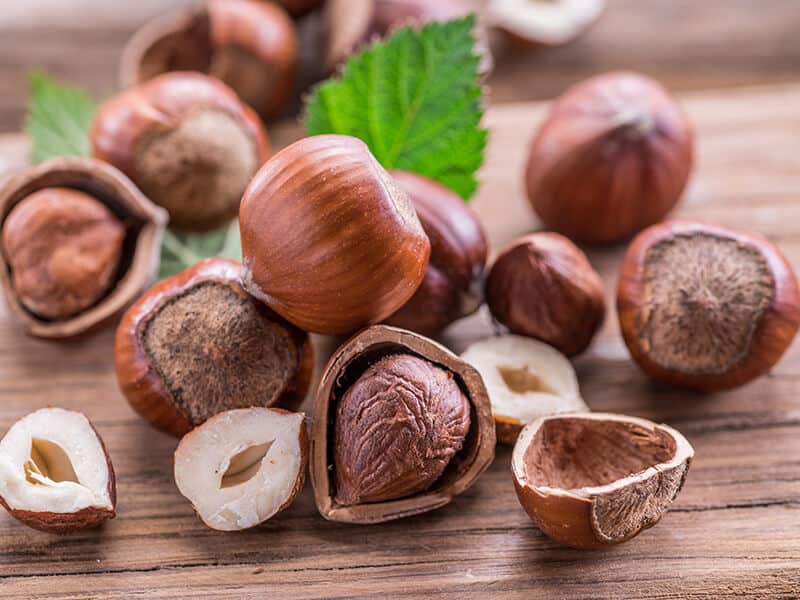
16. Almond
I have good news for you: almond hummus is as palatable as hummus with chickpeas. What do you think? It’s apparently my go-to hummus right now.
Apart from hummus, almond is also a common name in the baking world, where its application is boundless. You can make a cake with almond flour or use almond slices to decorate the baked goods.
If you’re tired of drinking chickpea milk in the morning, switch to almond milk and soon find it tasty and nutritious.
This nut is a powerhouse and pantry staple you would love to add to your grocery list from now.

Almond hummus seems to be the best recipe I’ve discovered recently:
17. Sunflower Seeds
Have you ever eaten sunflower seeds straight from their package? I bet you have.
They’re considered a well-balanced and nourishing snack. These tiny seeds are jam-packed with vitamin E and protein.
Like most chickpea alternatives I have mentioned in this post, sunflower seeds are so convenient if you love adding crunchiness to a bowl of greens.
Additionally, you can bake bread with them or sprinkle them all over your muffins and scones. Sounds great?
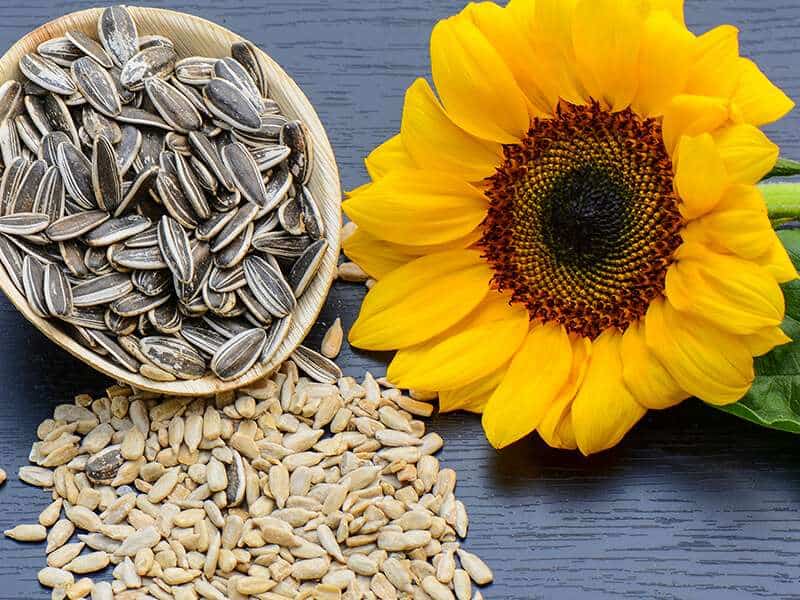
18. Sorghum
Besides chickpeas, vegetarians can stock a lot of sorghum in their kitchen for a weeknight dinner rotation. It has a mild and earthy flavor.
Like chickpea, sorghum can be used in flour, which is known as a wheat-like and gluten-free one. I bet you’ve never thought of sorghum brownies, right?
Although it might be new to many people, it’s easy to work with, just like you do with quinoa or rice. So, no need to worry when experimenting with new ingredients to expand your culinary horizon.
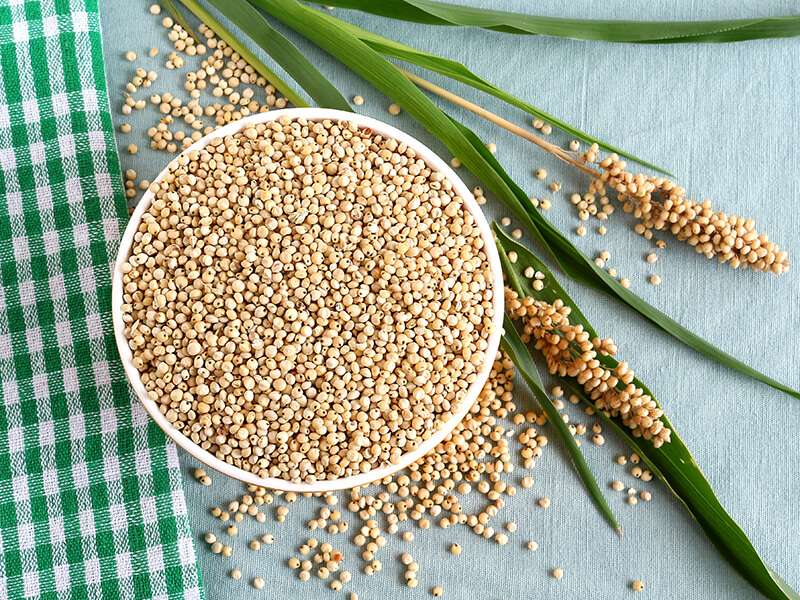
19. Quinoa
Quinoa is a simple and quick meal when you’re low on groceries. You’ve probably heard this before, but quinoa is a fantastic alternative for chickpeas in various recipes.
Quinoa is also gluten-free, so it’s perfect for gluten-intolerant people who want to improve their health in the long term. It’s also essential for vegetarian diets thanks to its nutrition: high in fiber and protein.
I highly recommend using this grain in salads, porridge, soups, buddha bowls, and more. There are endless cooking options when it comes to quinoa.

Cooking quinoa is as easy as pie. Let’s find out
How to Cook Dried Chickpeas Properly?
Chickpeas are a great addition to your diet, and they require specific steps to make them easier to cook and get the ultimate result.
Firstly, most dried chickpeas are hard, so you should soak them in water overnight to get them ready to cook. Remember to add enough water because they tend to double in size.
After the soaking process, drain the water out of the chickpeas and pour them all into a pot, cover them with cold water and cook for almost an hour until soft.
For extra crunchiness, you could toss them in the oven to enhance the texture.
Here are some popular chickpea dishes you could refer to if you don’t know what to do with a lot of chickpea in the rack:
- Hummus
- Chickpea curry
- Chickpea salad
- Falafel
- Chickpea soup
- Chickpea burger
- Chickpea cake
- Roasted chickpeas
FAQs
It’s high time for questions. Let’s discover one by one in the following section. Notice me if you have any specific interest related to chickpeas and their alternatives.
Upgrade Your Diet With Wholesome Chickpea Substitutes
Until now, all beans have been welcomed to my plate thanks to their incredible health benefits. Back then, when I started embarking on a health journey and removing harmful ingredients in my life, I discovered chickpeas.
I am delighted with chickpea recipes. And after a while, I began replacing chickpeas with similar ingredients (flavor and texture) depending on the different dishes I cook. This kitchen experimentation continues and goes well.
So far, I’m pretty satisfied with the black beans and cannellini beans, as well as the almonds. They are easy to cook, easy to combine in many dishes, and especially have many benefits for the body.
How about you? Share with me your experiences and keep in touch by dropping some lines in the comment section. I look forward to hearing from you.
References:
- Organic Facts.. 7 Important Benefits of Black Beans Nutrition | Organic Facts. [online] Available at: https://www.organicfacts.net/health-benefits/cereal/health-benefits-of-black-beans.html.
- Healthline.. Kidney Beans 101: Nutrition Facts and Health Benefits. [online] Available at: https://www.healthline.com/nutrition/foods/kidney-beans.
- Grapetree.co.uk.. 10 Things You Should Know About Hazelnuts | Grape Tree. [online] Available at: https://www.grapetree.co.uk/blog/post/ten-things-know-hazelnuts.


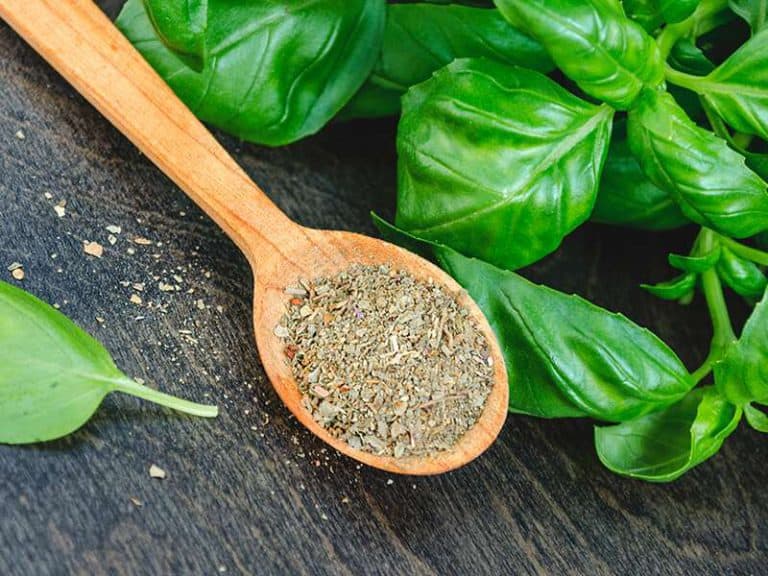
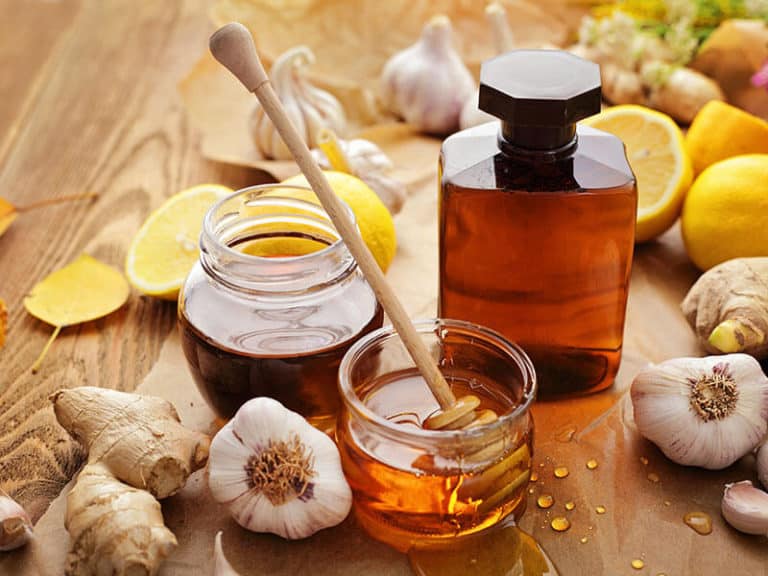
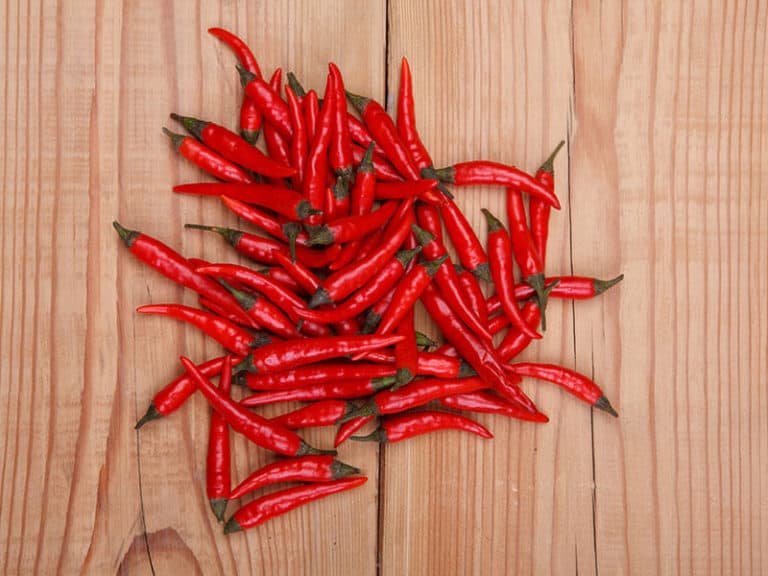
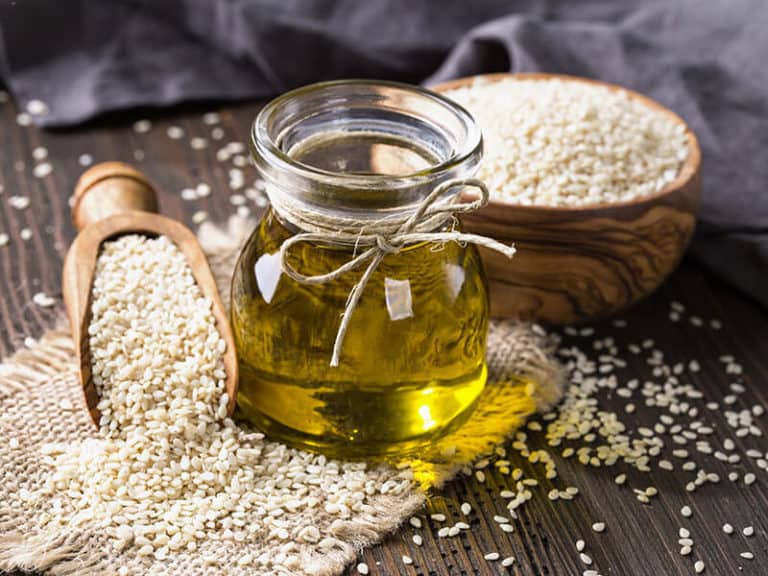
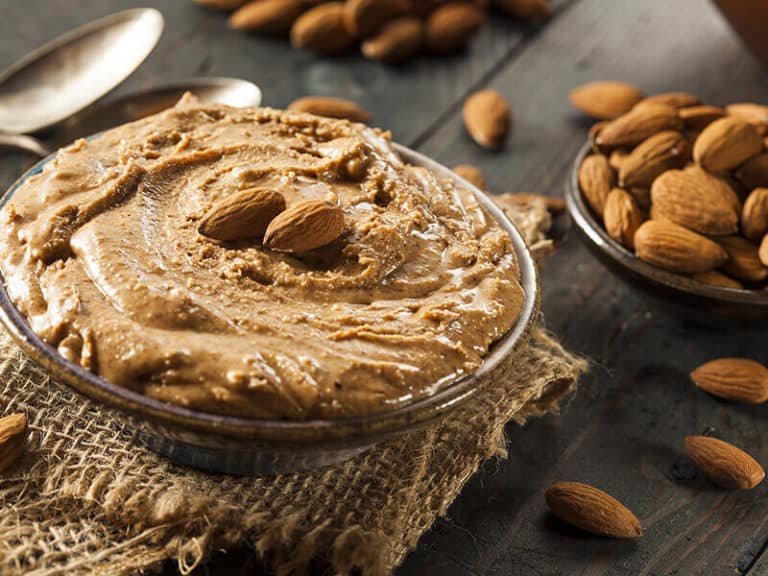
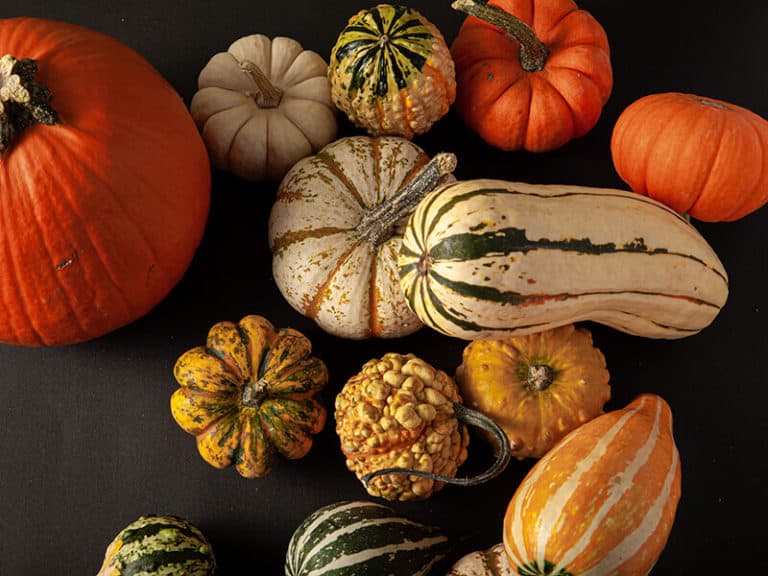
Amanda Collins
Founder and Senior Culinary Editor
Expertise
Culinary Arts and Management, Food Journalism and Critique, Recipe Development and Testing, Global Culinary Traditions, Sustainable Food Practices
Education
Institute of Culinary Education (ICE), New York, NY
Program: Diploma in Culinary Arts
Focus: Intensive hands-on training in culinary techniques, recipe development, and kitchen management, preparing students for professional roles in the culinary industry.
Monroe College, New Rochelle, NY
Program: Associate in Applied Science in Culinary Arts
Focus: Practical culinary skills, including cooking techniques, menu planning, and kitchen operations, with an emphasis on hands-on experience and industry standards.
Amanda Collins is a seasoned chef and food editor with a deep love for global flavors. Trained at the Institute of Culinary Education and Monroe College, and with over 15 years in the culinary field, Amanda has refined her skills in kitchens worldwide. Her background in food studies gives her a unique ability to share both recipes and the cultural stories that shape them.
As senior culinary editor at thebreslin.com, Amanda’s work brings authentic dishes to life, inviting readers to explore new flavors and techniques from around the globe. Her approachable style makes it easy for anyone to bring a bit of the world’s cuisine into their kitchen.